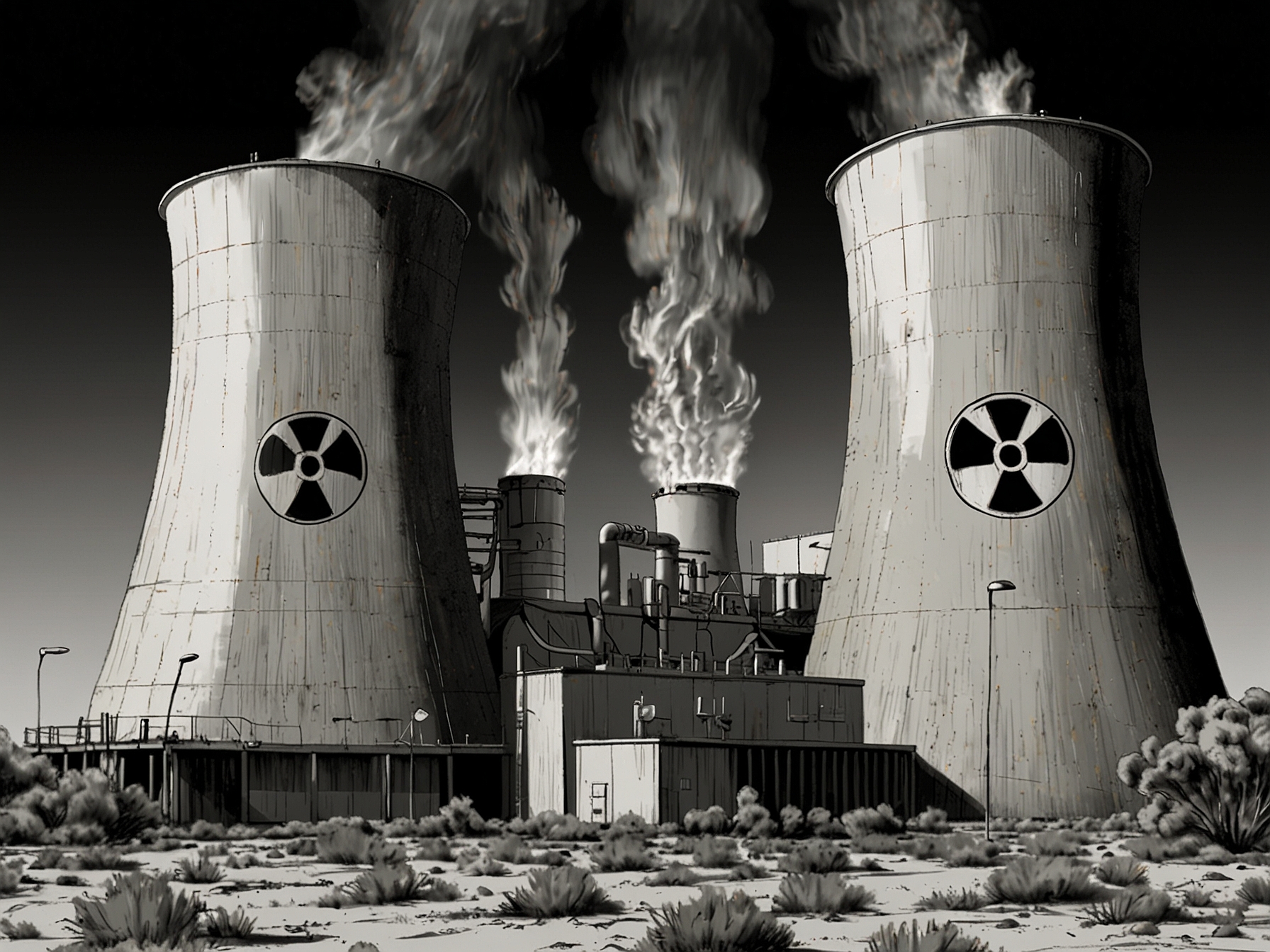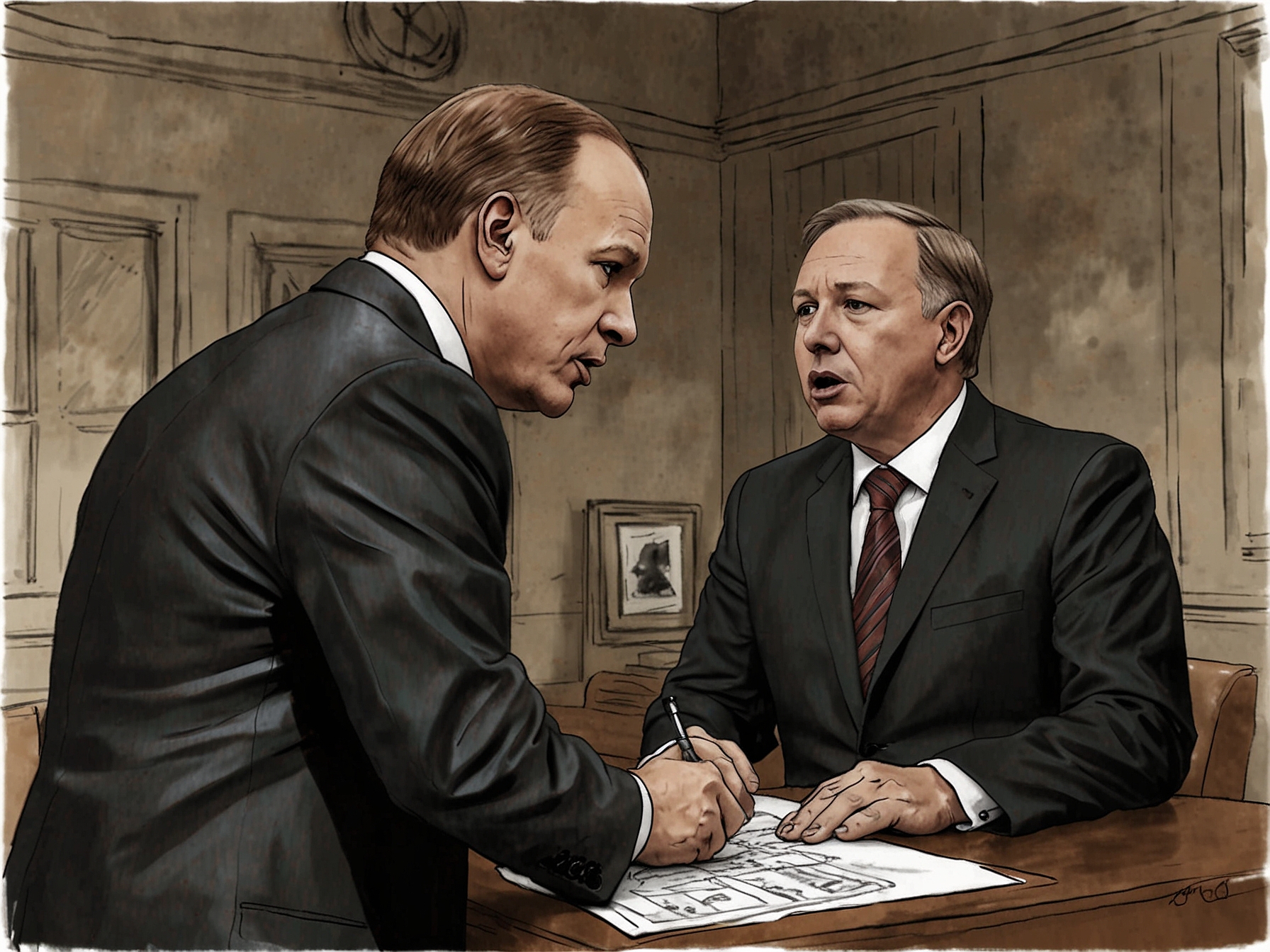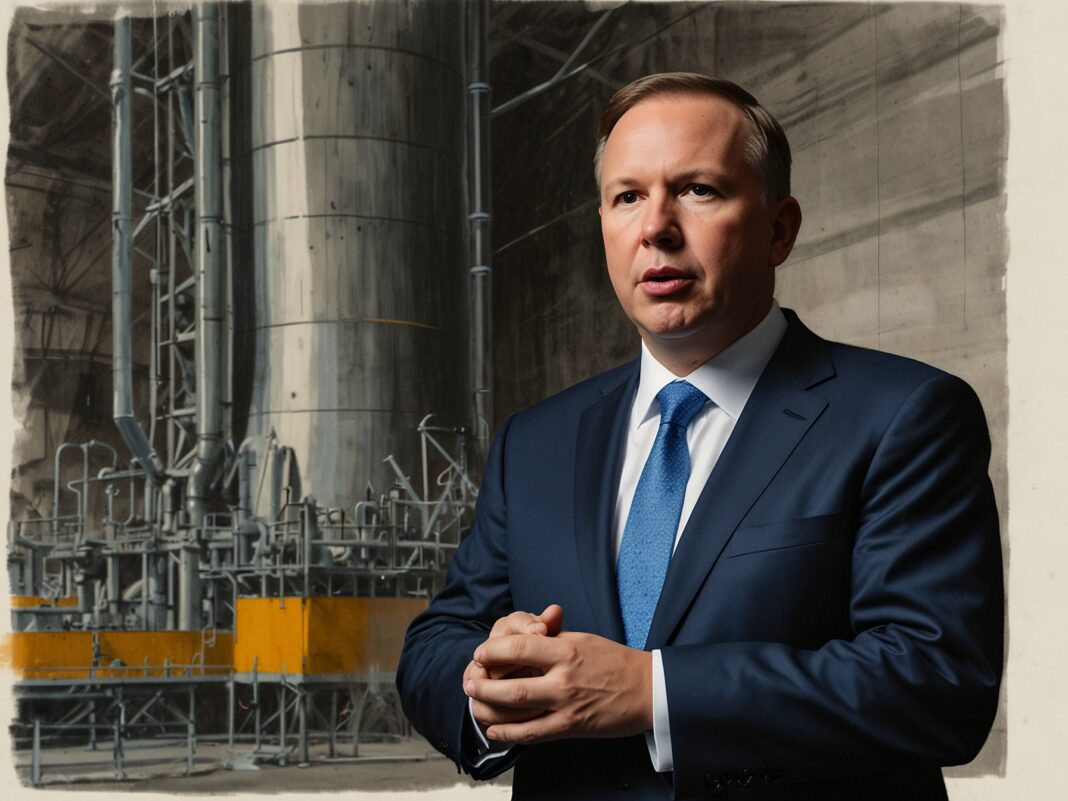The Coalition, led by opposition leader Peter Dutton, has recently put forth a nuclear power proposal which he claims will sustain local economies and ensure energy security for up to a century. However, the plan has faced significant scrutiny and skepticism, not least from Prime Minister Anthony Albanese, who asserted that the proposal unraveled within just 24 hours of its announcement. This has left many questions up in the air regarding the specifics of the Coalition’s nuclear aspirations, including the cost, type, output, and design of the reactors themselves. Furthermore, opposition from state premiers and property owners at the proposed sites has further complicated the rollout of this controversial energy initiative.

© FNEWS.AI – Images created and owned by Fnews.AI, any use beyond the permitted scope requires written consent from Fnews.AI
First and foremost, the financial implications of developing a nuclear energy infrastructure are monumental. Critical voices have pointed out the lack of transparent costing in the Coalition’s proposal. Establishing nuclear reactors is an astronomically expensive endeavor, with costs estimated to run into billions of dollars. Additionally, the construction of nuclear plants usually spans several decades, raising concerns about how these long-term projects will be financed and managed. Questions also loom large over the lifecycle costs, including decommissioning old reactors and managing nuclear waste—an aspect historically fraught with logistical and environmental challenges.
Aside from the costs, the specifics of the nuclear technology to be employed also remain ambiguous. The Coalition has yet to specify which type of nuclear reactors would be commissioned. Modern nuclear technology offers a range of options, from traditional large-scale reactors to Small Modular Reactors (SMRs). SMRs, for example, are considered more flexible and potentially safer than conventional reactors, but they are still largely in the developmental phase, which means they may not be ready for deployment any time soon. Clarity on whether the Coalition aims to pursue third-generation or experimental fourth-generation reactors would significantly impact not only the timeline but also the financial and environmental feasibility of the plan.

© FNEWS.AI – Images created and owned by Fnews.AI, any use beyond the permitted scope requires written consent from Fnews.AI
Another pressing concern is the anticipated output of the proposed nuclear energy plants. In the absence of detailed projections or feasibility studies, it is challenging for experts and the public alike to gauge the effectiveness and efficiency of the plan. Nuclear power plants are generally lauded for their high capacity factors, meaning they can produce a significant amount of electricity continuously. However, without baseline figures and performance targets, it becomes difficult to ascertain the true potential benefits of this proposal in terms of fulfilling future energy demands.
The design and safety measures of nuclear reactors are crucial, especially in the context of Australia’s stringent safety regulations and environmental laws. Previous nuclear incidents globally have shown that safety cannot be compromised. The public sentiment on nuclear energy often hinges on the perceived and real safety of nuclear operations. A clear, detailed plan that outlines comprehensive safety protocols is essential to gain public trust and regulatory approval. The Coalition’s proposal seems to lack this critical layer of detail, contributing to the overall confusion and skepticism.
Opposition from state premiers further complicates the Coalition’s nuclear proposal. State governments have the authority to approve or deny such large-scale infrastructure projects within their jurisdictions. The reluctance or outright resistance from state leaders could hinder or even halt the progress of the plan. This delicate interplay of federal ambition and state jurisdiction raises a significant barrier to the execution of the Coalition’s nuclear vision. Premier opposition is reportedly based on a variety of factors, including environmental concerns, public opposition, and the perceived inadequacy of the Coalition’s planning and consultation processes.
Compounding these challenges is the opposition from property owners at the proposed sites. Successful implementation of any infrastructure project requires not just technical and financial planning but also local support. Property owners’ resistance can lead to prolonged legal battles and delays, increasing the overall cost and complexity of the project. The Coalition must address these local concerns earnestly and transparently to move forward. Engaging with the community and addressing their apprehensions is vital for the Coalition to succeed in garnering the necessary support for their nuclear energy ambitions.
Lastly, Prime Minister Anthony Albanese has capitalized on the uncertainties and contradictions in the Coalition’s messaging to undermine public confidence in the proposal. Pointing out the inconsistencies and lack of preparedness, Albanese has driven a narrative that the nuclear plan is ill-conceived and prematurely presented. This political tug-of-war has further muddied the waters, leaving the electorate to decipher the real merits and demerits of nuclear power in Australia without clear, unbiased information.
In summary, the Coalition’s nuclear proposal is marred by a myriad of unanswered questions and contradictions in their rhetoric. From the enormous costs and ambiguous technological specifics to the lack of detailed output projections and safety measures, there are substantial gaps in the Coalition’s plan. Coupled with notable opposition from state premiers and local property owners, the feasibility of installing nuclear power plants remains highly contentious. In this climate of uncertainty, clear, detailed, and transparent communication from the Coalition is essential if they are to convince both the public and political stakeholders of the merits of their nuclear vision. Until then, confusion and skepticism will continue to reign over their nuclear ambitions.
Was this content helpful to you?





